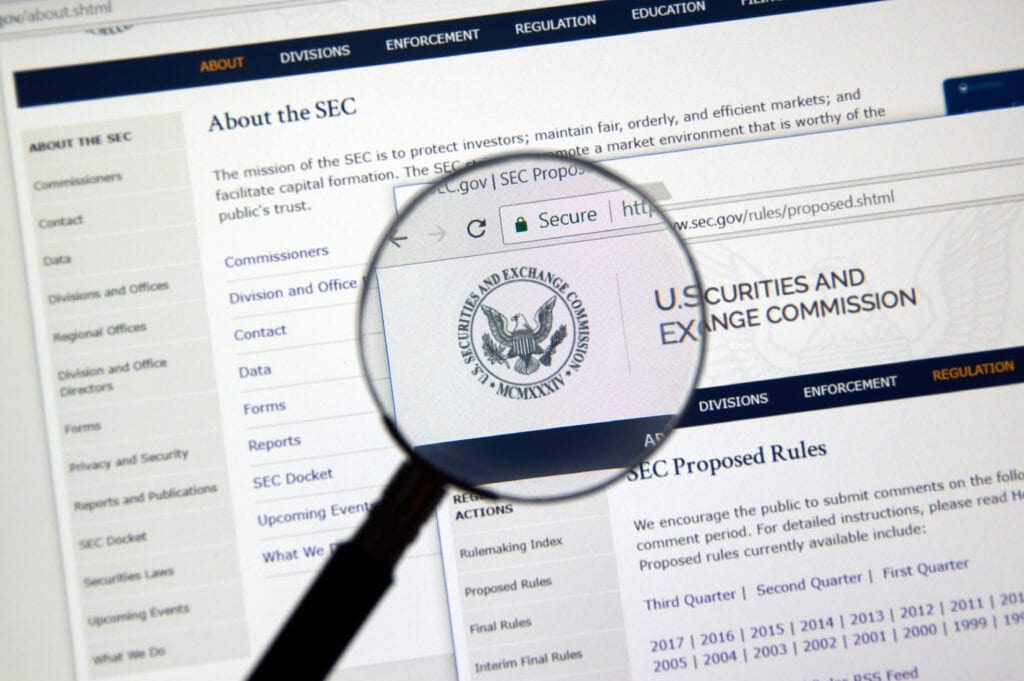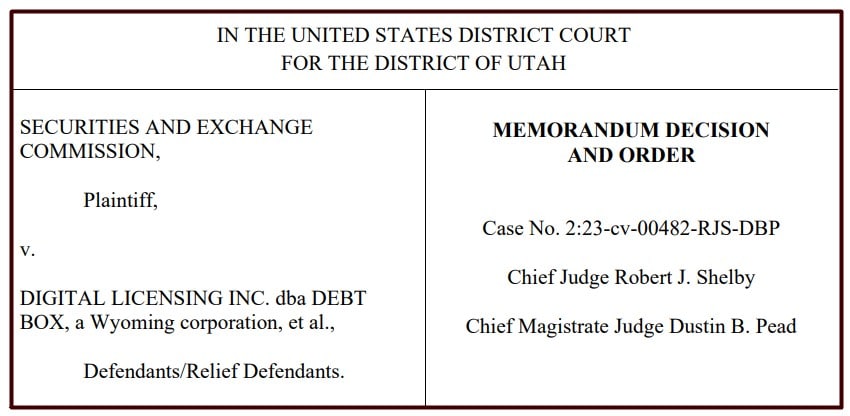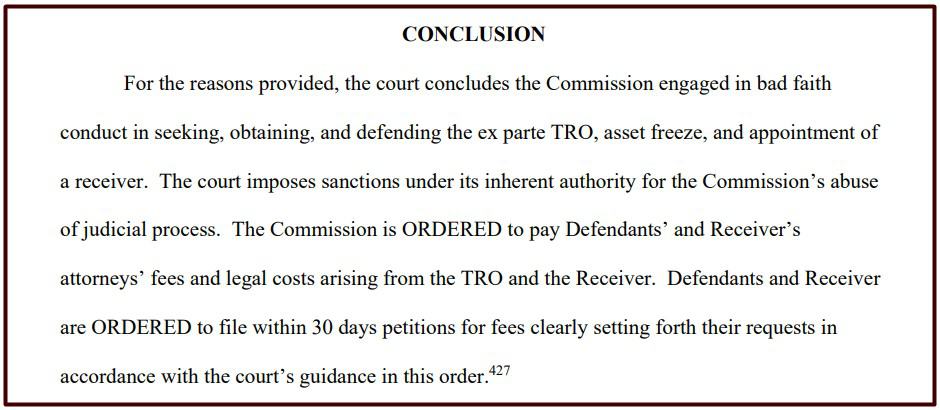
Key Takeaways:
- A U.S. district court issued sanctions against the SEC for misleading the court in its lawsuit against Debt Box, marking a significant rebuke for misuse of power.
- Judge Shelby criticized the SEC for misrepresenting evidence related to a $50 million fraudulent cryptocurrency operation, particularly a domestic transfer misrepresented as international.
- The case has led to calls for accountability and reform within the SEC, highlighting the need for personal liability for lawyers involved in such misconduct.
A recent ruling from a U.S. district court has placed the Securities and Exchange Commission (SEC) under scrutiny, issuing sanctions against the regulator for what has been described as a deliberate misuse of power in its legal action against Debt Box.
The controversy arose from the SEC’s lawsuit, which was initiated on grounds that later proved to be misleading, leading to a strong rebuke from Judge Robert J. Shelby.

Judge Shelby’s findings were stark, highlighting the SEC’s admission of misleading the court while contesting the need for sanctions. He criticized the SEC for its baseless and misleading representation of evidence to secure a temporary restraining order (TRO) and an asset freeze against Debt Box in August.
The judge in the Debt Box case has issued an 80 page opinion sanctioning the SEC for egregious misconduct in the case.
— MetaLawMan (@MetaLawMan) March 18, 2024
The opinion is devastating to the SEC as an institution and to the particular lawyers who committed the misconduct.
The judge made it crystal clear that the…
The judge pointed out that the SEC’s actions represented a significant abuse of the authority granted by Congress, affecting the integrity of the judicial process.

The case’s focal point revolved around the SEC’s claims that Debt Box was involved in a $50 million fraudulent cryptocurrency operation, advocating for a TRO and asset freeze under the pretext that the company had begun transferring funds overseas.
According to the SEC, these actions were indicative of an intention to flee to the United Arab Emirates and further conceal assets.
However, Judge Shelby, upon reviewing the evidence, determined that the SEC had misrepresented the facts, notably that the mentioned $720,000 transfer occurred domestically within the United States.
The staff involved should be terminated, the agency should be reformed, and going forward, SEC lawyers should have personal liability for such conduct, in addition to the agency itself. What is described here is unconscionable for those entrusted with such authority by law.
— Austin Campbell (@CampbellJAustin) March 18, 2024
Despite acknowledging its failure to be fully transparent, the SEC argued against the imposition of sanctions. This stance was met with criticism, particularly targeting SEC attorney Michael Welsh for his role in misleading the court and contributing to the agency’s attempt to obscure its missteps.
The case has prompted calls for accountability and reform within the SEC, with suggestions for personal liability for the lawyers involved, to underscore the seriousness of such misconduct for those wielding significant legal power.
Today a Federal Court sanctioned the SEC for abusing its unique status to present evidence that was false, mischaracterized, and/or misleading. If anyone thinks this conduct by this agency under this leadership is limited to this case, I have a bridge in Brooklyn to sell. pic.twitter.com/quOFBNmqxK
— Stuart Alderoty (@s_alderoty) March 19, 2024
The unfolding of this case has ignited a broader discussion on the ethical responsibilities of regulatory bodies and the need for stringent oversight to prevent the misuse of legal authority.





